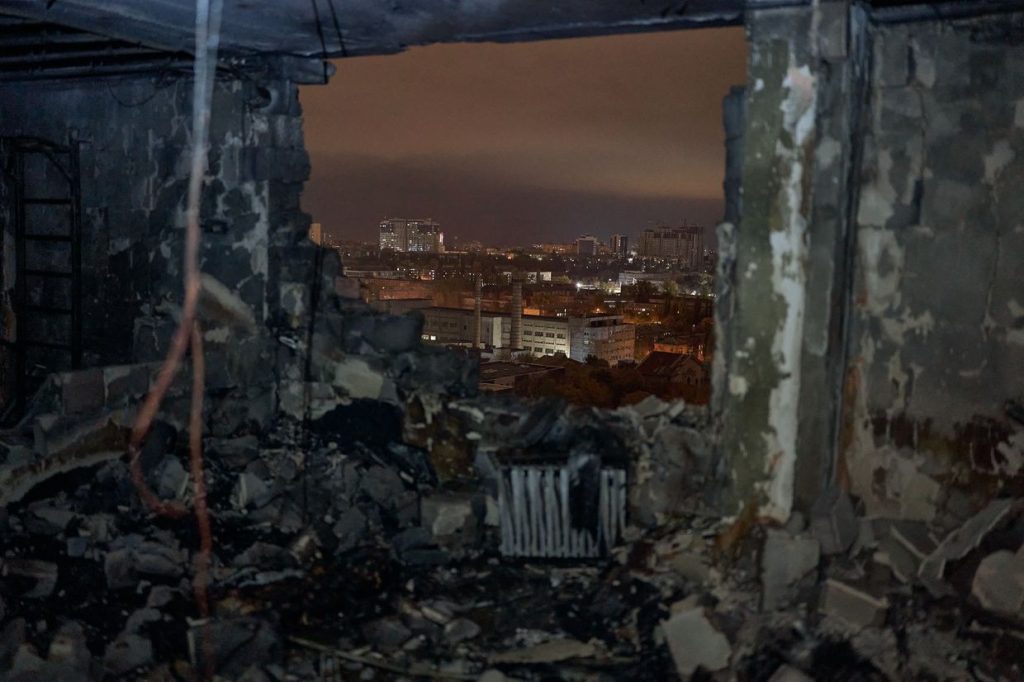Estonian arms company Frankenburg Technologies has announced its decision to transfer air defense missiles to Ukraine for testing, in response to Kyiv’s request for additional air defense assets amid Russia’s intensified attacks. The missiles to be tested are designed to counter drones and have the capability to shoot down targets at an altitude of up to 2 kilometers. The CEO of Frankenburg Technologies, Kusti Salm, emphasized the company’s goal of helping Ukraine win the war by providing a sample of a new low-cost missile for air defense. Discussions have taken place between Salm and Ukraine’s Deputy Defense Minister regarding the upcoming tests, with plans to agree on a financing format for missile production if the trials prove successful.
Frankenburg Technologies is a defense-industrial company based in Tallinn, Estonia, founded in 2024. The company currently operates in Ukraine, Latvia, and Estonia and has recently engaged in a partnership with Ukraine under a 10-year bilateral security agreement signed in June. The agreement includes the provision of defense aid valued at over 100 million euros this year, with Estonia committing to allocate a portion of its GDP annually for military support in the coming years. The partnership also involves the establishment of a regular strategic dialogue and the deepening of military-industrial cooperation between Kyiv and Tallinn.
As the possibility of U.S. President-elect Donald Trump withdrawing support for Ukraine looms, Kyiv has considered the option of nuclear deterrence to safeguard its security. President Volodymyr Zelensky previously mentioned discussing this potential strategy with Trump in October, sparking discussions on the feasibility and implications of Ukraine pursuing nuclear deterrence as a response to possible shifts in U.S. policy towards the country. The idea has raised various concerns and questions about the strategic implications of such a decision and the potential consequences on regional and global security dynamics.
The geopolitical landscape in Eastern Europe continues to evolve as Ukraine navigates the complex dynamics of its relationships with neighboring countries and global powers. The partnership between Estonia and Ukraine in the defense sector reflects Kyiv’s efforts to enhance its military capabilities in the face of ongoing security challenges, particularly in the context of Russia’s military actions in the region. The transfer of air defense missiles by Frankenburg Technologies signifies a tangible step towards bolstering Ukraine’s defense capabilities and addressing the urgent need for additional air defense assets to counter threats from unmanned aerial vehicles and other airborne targets.
The collaboration between Estonia and Ukraine in the defense industry underscores the importance of regional security cooperation and the shared interests of both countries in addressing common security challenges. The commitment of Estonia to provide military support to Ukraine, as outlined in the bilateral security agreement, demonstrates a strategic alignment between the two nations in strengthening their defense capabilities and fostering closer ties in the security domain. The exploration of nuclear deterrence as a potential option by Ukraine highlights the complex security environment in the region and the need for innovative approaches to enhancing national security in the face of evolving threats and geopolitical dynamics.
Overall, the transfer of air defense missiles to Ukraine by Frankenburg Technologies, the discussions on nuclear deterrence as a strategic option, and the broader context of regional security cooperation between Estonia and Ukraine reflect the ongoing efforts of Kyiv to bolster its defense capabilities and navigate the complex geopolitical landscape in Eastern Europe. The evolving dynamics in the region, including potential shifts in U.S. policy towards Ukraine, further underscore the importance of strategic partnerships and innovative defense solutions to address the security challenges facing the country and the broader region.















